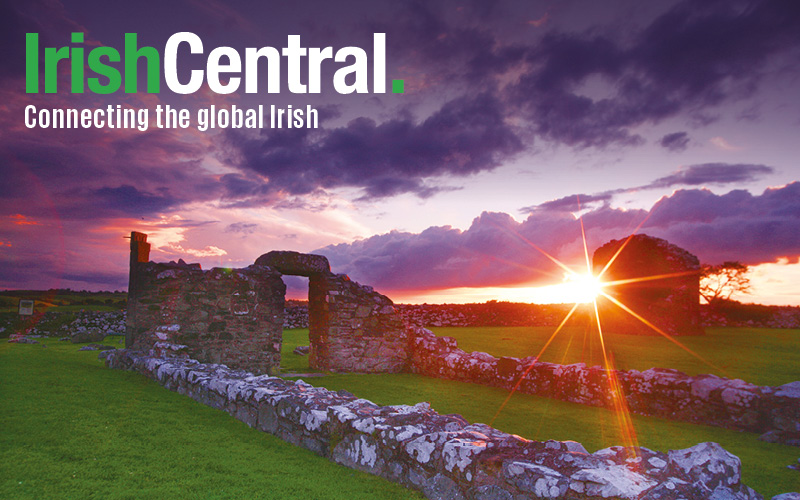A look at the Irish successes over the history of the English Grand National
Every April, the greatest steeplechase in the world takes place on a racecourse outside Liverpool - The Aintree Grand National, an exhilarating test of endurance for horse and jockey.
Read More: Mystery of Shergar the champion horse who was kidnapped in Ireland
Unfortunately, this year the great sporting spectacle has fallen victim to COVID-19 and will not take place. But, let's not forget past glories and that of a Donegal plough horse.
In Ireland, the love affair with the famous race has remained strong since this country's first winner in 1847. Back then, it was a horse from north Cork called Matthew who claimed victory, and from then on, there have been sprinklings of Irish success at the famous race.
In both 1850 and 1851, an Irish entrant small horse called Abd-El-Kader won the Grand National. In 1920, Ireland produced another winner in the form of Troytown, a 6/1 shot from Gibbstown, Co Meath.
Four years later, another horse from these shores took the honours at the world-famous race. When Master Robert won the 1924 Grand National, it was considered an English victory, but Master Robert originally started life as a plough horse in Donegal.
The impressive-looking beast was used solely as a workhorse on the land of Robert McKinley in Castlefinn during the years of the Great War. Afterward, he was sold to Mr. J.T Elliot in Strabane for £50 and, in honour of his original owner, he was called Master Robert.
While in Strabane, Master Robert lived a somewhat mundane life on the Elliot farm until one day his new owner moved him to graze on a field next to a railway line. Mr. Elliot stayed to watch the horse's reaction to a train coming down the track fearing the steam locomotive might spook the beast and he'd have to move him to another field but what Mr. Elliot witnessed almost caused him to keel over with shock.
As the train came thundering by, the horse suddenly jumped the fence at an enormous height and galloped ferociously in front of the steam train and didn't stop for almost two miles!
When Mr. Elliot eventually recovered from his shock at seeing such a sight, he immediately acted on the horse's potential as a great steeplechaser and sold him to trainer Mr. Laverty in Dungannon who, in turn, sold the horse on to Mr. P Rodgers in Ratoath, Co Meath.
After a few years as a hunt horse in the Royal County, Master Robert was sold to Mr. Fordham of Hertfordshire in 1921 where he was raced on courses across Britain. Scottish peer and racing fanatic Lord Airlie took a fancy to the beast from Donegal and bought him off Mr. Fordham just in time to enter him into the big race at Aintree in 1924.
Read More: Liam Neeson reckons a horse on his new movie recognized him from a previous shoot
When Master Robert won the world-famous race he did so at odds of 25/1. The horse who was once sold for £50 had in the aftermath of the 1924 Grand National netted his new owner Lord Airlie £50,000.
Celebrations after the Grand National victory verged on the extravagant when winning jockey Bob Trudgill reenacted his victory on board Master Robert by leaping over 20 magnums of champagne in the shape of Beechers Brook!
More Irish-bred horses would go on to win the Grand National after Master Robert, such as Workman from County Cork in 1939 and Caghoo in 1947 at odds of 100/1.
The 1950s saw the dominance of Irish horses with Early Mist in 1953, Royal Tan in 1954, and Quare Times in 1955 - a treble of winners from the famed stables of Vincent O' Brien.
In 1958, Mr. What won the Grand National. It was another two decades before another Irish horse, L'escargot, would win a Grand National when he famously denied Red Rum a treble of Grand National wins.
At the turn of the millennium in 1999, Bobbyjo won the famous race and the following year Papillion won for the father and son team of Ted and Ruby Walsh.
In 2003, Co Cork produced another winner at Aintree with Montys Pass and another Irish bred Grand National winner came in the form of HedgeHunter in 2005, a graduate of the Willie Mullins school of winners. The following year saw a horse named after a Spanish villa win the famous race when Numbersixvalverder romped home at odds of 11/1.
In 2007, Silver Birch won at odds of 33/1 and in 2016, the Mouse Morris-trained Rule the World ruled the day at 33/1. Tiger Roll and jockey Davy Russell claimed a double in 2018 and 2019 but unfortunately, the great Tiger will not get a chance to roar for a treble this year.
But, let's not dwell on regret and look forward to more stories of Irish success to come at Aintree in the future, like the amazing story 96 years ago of the Donegal plough horse who conquered The Grand National.
This article was submitted to the IrishCentral contributors network by a member of the global Irish community. To become an IrishCentral contributor click here.




Comments